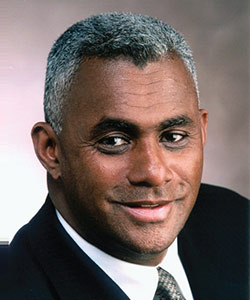by Trevor Wilson
Author and Global Human Equity Strategist
TWI Inc.
In The May/June edition of this publication I introduced the concept of The equitable leader. The article highlighted that the equitable leader exhibits a different set of behaviors than the typical leader in the world of work. These behaviors can be summarized into eight categories which we call the Equitable Leader Competencies. These eight core competencies were identified a decade ago by organizational psychologists at the University of Western Ontario in Canada.These academics completed a piece of research that started with the hypothesis that there was a difference between a leader who treats people equally (the same) versus a leader who consistently treats employees equitably (i.e. fairly).
These eight competencies are listed below with brief definitions for each.
- Openness to Difference — A leader who demonstrates a positive attitude toward others who are different from themselves.
- Equitable Opportunity — A leader who makes employment decisions (e.g., promotion and selection) strictly on the basis of merit.
- Accommodation — A leader who demonstrates creativity when solving problems and adaptability when responding to the needs of different employees e.g. work and life balance.
- Dignity and Respect — A leader who creates a work environment where the opinions and contributions of all team members are valued.
- Commitment to Diversity and Inclusion — A leader who enthusiastically endorses and participates in programs to create and support diversity and inclusion in the workplace.
- Change Management — A leader who contributes to the development of an organization that values diversity and inclusion through the implementation of effective change management practices.
- Ethics and Integrity — A leader who embodies the principles of fair and ethical conduct and demonstrates honesty, reliability, responsibility and constancy in one’s daily work life.
Over the years we have come to understand that these eight competencies are not equally weighted. Competencies like openness to difference, accommodation and change management would qualify are most significant. These are very important competencies for leaders to demonstrate if an organization looks to move towards a truly equitable and inclusive work environment for all. However, while these three competencies are necessary they are not sufficient to really create long-term sustainable change.
In order to create change you need to find the essence of equitable leadership. Our research shows that there are three competencies that form the core of equitable leadership. These three competencies are dignity and respect, ethics and integrity, and equitable opportunity. I believe if leaders do not consistently demonstrate these competencies it is virtually impossible for an organization to move towards human equity, where the skills and abilities of the total workforce can be maximized.
Ralph Waldo Emerson once said, “What you do speaks so loud I can’t hear what you are saying.” In other words actions speak louder than words. Leaders who may demonstrate knowledge and commitment to diversity and inclusion but use their authority to threaten, intimidate and practice behavior intended to humiliate and shame will cause more damage to an inclusive and equitable workplace than any unfair policy or procedure.

Trevor Wilson
Global Human Equity™ Strategist, Toronto, ON. He is a dynamic speaker, a visionary thought leader and a global diversity and Human Equity™ strategist. Wilson is founder and president of TWI Inc






